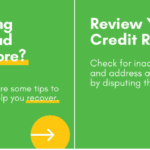The Hidden Risks of Co-Signing a Loan
Co-signing a loan for a friend or family member might seem like a kind and generous act, but it comes with significant risks that many people overlook. Before putting your financial future on the line, it’s important to understand the potential consequences of co-signing a loan.
What Does It Mean to Co-Sign a Loan?
When you co-sign a loan, you are agreeing to take full responsibility for the debt if the primary borrower fails to make payments. Essentially, you are guaranteeing the lender that the loan will be repaid, even if you are not the one using the money.
The Risks of Co-Signing
While helping a loved one may feel rewarding, co-signing a loan can negatively impact your financial stability in several ways:
- Damage to Your Credit Score
If the borrower makes late payments or defaults, those missed payments will appear on your credit report and lower your credit score. - Increased Debt-to-Income Ratio
Since co-signed loans appear on your credit report, they can increase your debt-to-income ratio, making it harder for you to qualify for other loans or credit lines in the future. - Legal and Financial Liability
If the borrower defaults, the lender can pursue you for the remaining balance, including interest and late fees. In some cases, this could even lead to legal action. - Strained Personal Relationships
Money issues often cause tension in relationships. If the borrower struggles to make payments, it could lead to conflict, resentment, or a complete breakdown in trust. - Impact on Your Ability to Borrow
Even if the borrower is making timely payments, lenders may view your co-signed loan as a liability, reducing your chances of securing your own credit or loans.
How to Protect Yourself
If you still decide to co-sign a loan, consider these precautions to minimize your risk:
- Assess the Borrower’s Financial Situation – Ensure they have a stable income and a reliable repayment plan.
- Set Up Automatic Payments – Request that the borrower enroll in automatic payments to reduce the risk of missed deadlines.
- Get a Written Agreement – Have a formal agreement outlining how payments will be made and what will happen if financial difficulties arise.
- Monitor the Loan – Regularly check the loan statements or credit reports to stay updated on payment history.



